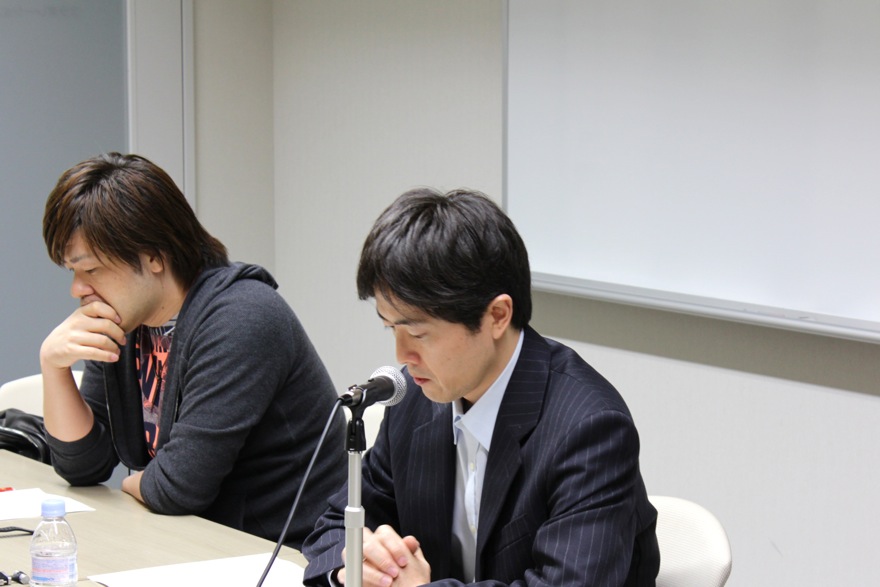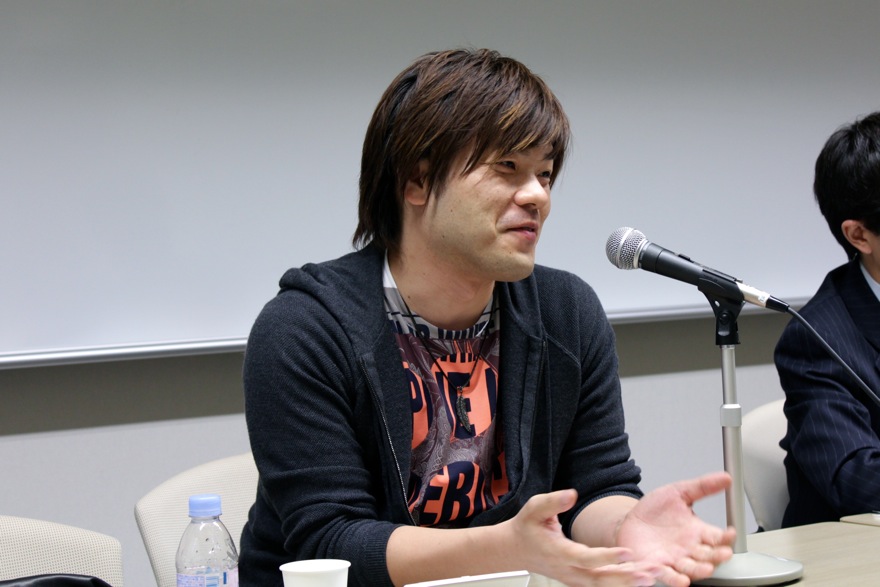[Report] The "UBI SUMUS" Series 1
UTCP launched a new lecture series titled “UBI SUMUS” (where are we?). Organized by Professor Yasunari Takada (UTCP), this series aims at identifying where we are, both in a national and global context. On October 26th, 2012, the first of the series was held with Professor Masaaki Takeda (UTCP) as a speaker and Mr. Keiichiro Hirano as a discussant.
Prof. Takeda’s lecture, “‘Dividualism’ and Atonement or How to Act after the Quake: Reading Novels by Keiichiro Hirano, Ian McEwan, Fuminori Nakamura, and Risa Wataya,” developed a new idea of the self through a reading of several contemporary novels. “Dividualism” is a notion proposed in Mr. Hirano’s recent publications such as Dawn (2009) and What is ‘I’ ?: From Individuals to Dividuals (2012). The etymology of the word “individual” is “something that cannot be divided.” However, Mr. Hirano, to tackle the problem of the self from a new perspective, introduces the idea of the “dividual.” By removing the negative prefix “in,” he regards the human being as an existence that can be “divided,” namely, multi-layered and diverse. Prof. Takeda, referring not only to Mr. Hirano’s novels but also to works by McEwan, Nakamura and Wataya, showed the new image of the self in contemporary fiction.

Mr. Keiichiro Hirano, as a novelist, responded to Prof. Takeda’s talk. He told us how the notion of “dividualism” occurred to him through his own experience. As a high school student, he had a feeling that there are multiple “selves”: for example, the self enjoying arts and novels seemed to be “true” self; in contrast, the self in classroom, who cannot share his interests with classmates, seemed to be “masked” one. Such a feeling of the plural selves is the beginning of his theory of “dividualism.” Reading the novels of Thomas Mann and Yukio Mishima, he has been strongly influenced by Romanticism in literature. Emblematic of Romanticism is the pursuit of the “real” self in the choice of “one and true” image of the self, as embodied by Mishima. Although influenced by such a Romantic dualism of the true self, Mr. Hirano finds that such a “one and true” self is merely a fantasy. That is how the notion of “dividualism” occurred to him.

Prof. Takeda responded to Mr. Hirano, and suggested that his idea of “dividualism” is different from the postmodernist view on the plural aspects of the self, in spite of the similarity between them, in that the former has a “social” aspect and the latter a “narcissistic” one. In addition, Mr. Hirano, in answering Prof. Takada’s question, proposed that the notion of “dividual” concerns “the other” in the second-, as well as the third-person. A spirited discussion followed with questions and comments from the audience. With regard to the new image of “self” in contemporary novels, the first of the UBI SUMUS series ended successfully.
Report: Futoshi Hoshino (UTCP)






